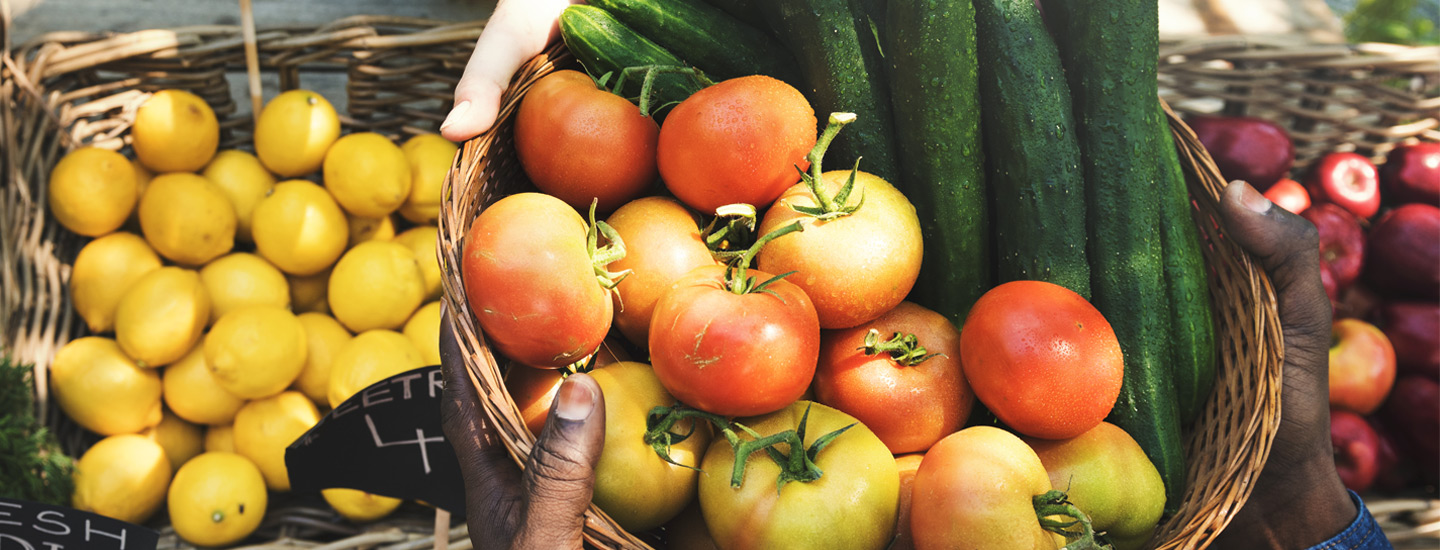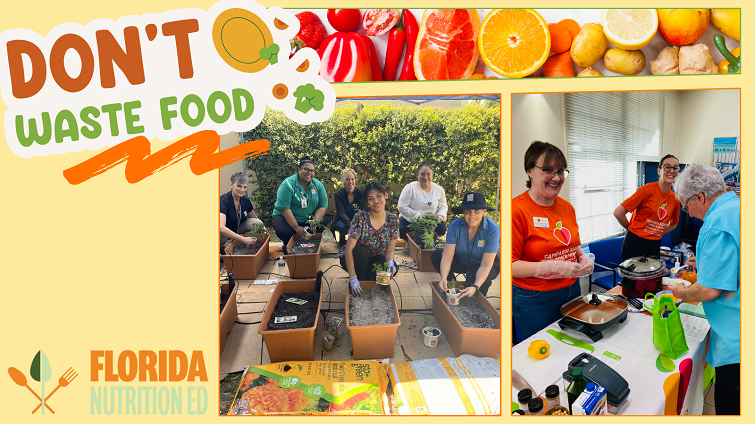Did you know that learning about food can help you eat healthier and save money, and also reduce waste? Feeding Florida's nine network food banks are making this possible through their SNAP-Education Program, the Florida Nutrition Education Program.
Here are some of the valuable things our SNAP-Ed classes are teaching in communities across the state:
- Shop Smart: Food budgeting helps participants save money at the grocery store, and also be more thoughtful with their purchases overall. This means focusing on buying what we really need, so less food goes to waste.
- Creative Cooking: Developing skills in cooking and meal planning helps individuals use up ingredients that they may not know how to use otherwise, especially foods that are new to them.
- Keep it Fresh: Classes teach how to store food properly, preventing certain foods from spoiling too quickly.
- Food Safety: A big way to prevent food waste is knowledge! Our classes help students understand how long foods are safe to eat, whether cooked at home or bought from the store, and exactly what sell-by or best-by dates mean for food quality and safety.
- Food Preservation: Ways to use all edible parts of fruits and veggies, like broccoli stems or carrot greens, are the next level of food waste prevention. Plus, techniques like freezing, pickling, or drying can help save foods that you can't eat before they go bad.
Though each food bank’s nutrition team teaches different curricula, one important series that specializes in food waste prevention is called Food Smarts. It's a curriculum that focuses on health and cooking skills as well as food budgeting and how to prevent food waste.
To further educate the community, All Faiths Food Bank’s team of nutrition educators has added a new series to their efforts through a specific Food Smarts curriculum, called Waste Reduction. They’ve presented these classes at sites like the Casa San Juan Bosco housing complex, located in Arcadia. Educators Courtney DeFrank and Claudia Castillo taught participants how to preserve fresh cucumbers by making pickles in one of these classes.
“The participants seem to really enjoy the classes. It helps them think of creative ways to use food items they already have on hand in new and creative ways.”- Courtney DeFrank
Kristina Richardson, Nutrition Education Manager at All Faith’s, played a big part in creating a community garden at the Desoto Health Department. Once the fresh produce grows, the nutrition education team plans to provide classes there and will incorporate lessons about preventing food waste.
“My team and I are excited for the ability to integrate the Waste Reduction curriculum with our community garden. Food waste prevention helps families stretch their food dollars by not throwing away food that can be saved and used in different ways. With the cost of living and food prices increasing saving money on food allows you to use that money towards other expenses.” -Kristina Richardson
Food Waste Prevention Week in Florida runs from April 1-7; Feeding Florida and its programs, Florida Nutrition Ed and Fresh Access Bucks, are proud to be partners in this work. To learn more about our SNAP Ed programming or to find a free class in any Florida’s 67 counties, in person or online, visit: www.floridanutritioned.org. For more about our Nutrition Education efforts around food waste prevention, you can also reach out to Stacey Struhar at stacey@feedingflorida.org.
This institution is an equal opportunity provider.


